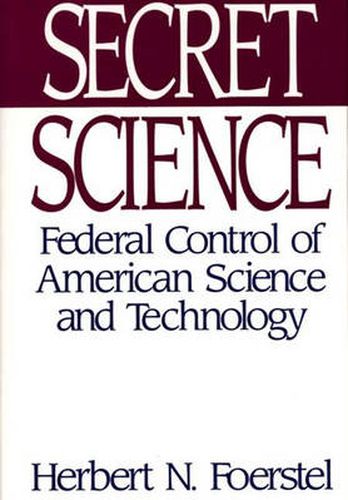Readings Newsletter
Become a Readings Member to make your shopping experience even easier.
Sign in or sign up for free!
You’re not far away from qualifying for FREE standard shipping within Australia
You’ve qualified for FREE standard shipping within Australia
The cart is loading…






This book is a plea for scientific openness and free access to information. It demonstrates the futility of scientific secrecy and the weakness of national arguments against open communication. From the restriction of technologically advanced exports, to the classification of research as restricted or secret, to the monitoring (and censoring) of scientific publications and library collections, to the pre-emption by the Pentagon of scientific and technological research, the US federal government has achieved a state of unprecedented control over American science and technology - this despite the end of the Cold War. Foerstel examines this continuing trend toward the state as chief sponsor, promoter, and supervisor of scientific research and its unsettling ramifications. Foerstel concludes that scientific secrecy is counterproductive to American interests, particularly in an era when economics has come to define national security. His controversial analysis aims to be of interest to scientists, historians, and students of government alike.
$9.00 standard shipping within Australia
FREE standard shipping within Australia for orders over $100.00
Express & International shipping calculated at checkout
This book is a plea for scientific openness and free access to information. It demonstrates the futility of scientific secrecy and the weakness of national arguments against open communication. From the restriction of technologically advanced exports, to the classification of research as restricted or secret, to the monitoring (and censoring) of scientific publications and library collections, to the pre-emption by the Pentagon of scientific and technological research, the US federal government has achieved a state of unprecedented control over American science and technology - this despite the end of the Cold War. Foerstel examines this continuing trend toward the state as chief sponsor, promoter, and supervisor of scientific research and its unsettling ramifications. Foerstel concludes that scientific secrecy is counterproductive to American interests, particularly in an era when economics has come to define national security. His controversial analysis aims to be of interest to scientists, historians, and students of government alike.